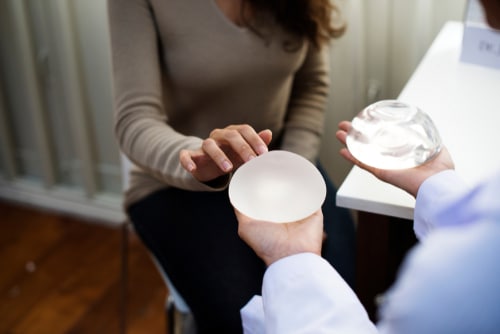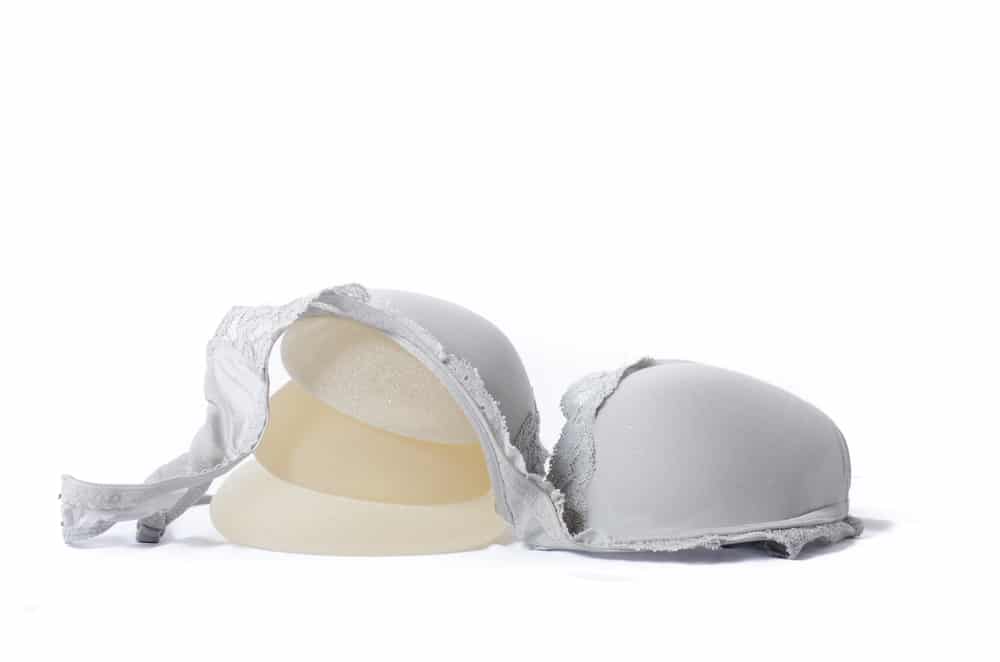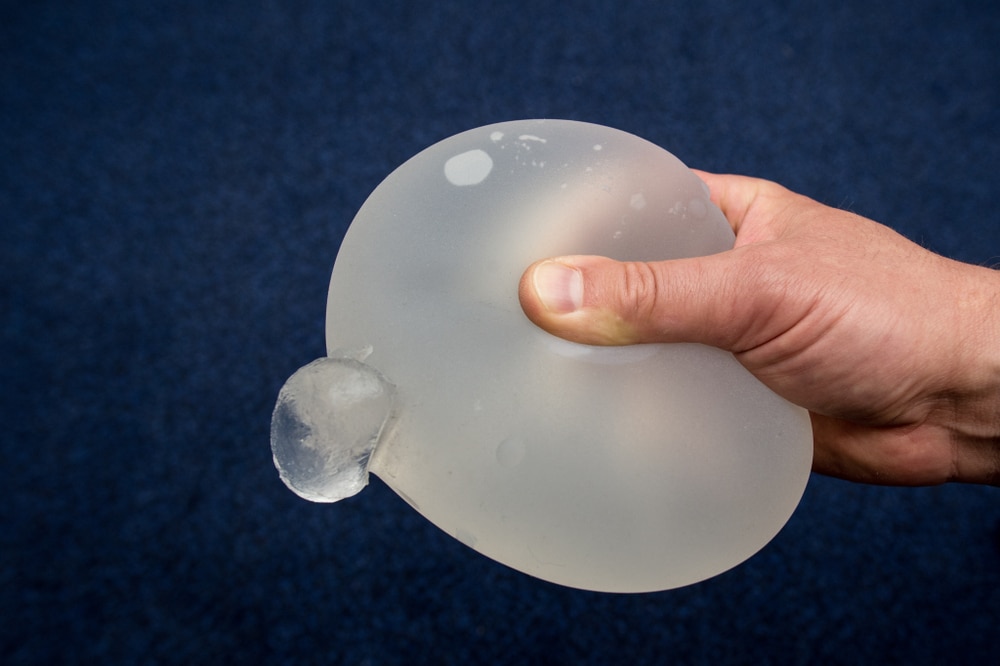Approximately 3.5 million people in the United States have breast implants. Often placed for cosmetic purposes, implants are positioned either above or below the pectoralis muscle. Implants can be saline or silicone. A possible complication of breast augmentation is implant rupture or leakage. The question often asked is whether a leaking implant must be removed.
Saline or Silicone?
The first issue to determine when answering this question, is whether the implant is saline or silicone. All implants will have a fibrous capsule that develops around them, which is called the capsule. It is the human body’s reaction to a foreign body. Implant rupture that is contained within the capsule is referred to as an intracapsular rupture. If the leakage extravasates outside the capsule, then it is referred to as extracapsular leakage.
Saline Implants
If a saline implant leaks, the saline solution is harmless and becomes absorbed by the body. The shell of the implant remains though. Although not necessarily dangerous, the collapsed implant can become uncomfortable if the edges press against the overlying skin. A ruptured saline implant will always be intracapsular as the saline solution is absorbed. The sign of a ruptured saline implant is deflation of the breast resulting in it looking smaller and more wrinkled compared to the breast within an intact implant.
Silicone Implants
When evaluating a leaking silicone implant, it is important to determine whether the rupture is intracapsular or extracapsular. An intracapsular leakage can form capsular contracture which is where the fibrous capsule around the implant becomes thicker and harder. This makes the implant feel very firm and unnatural. Capsular contracture can also cause implant malposition, shifting the implant to an unnatural superior position within the breast. Breast asymmetry then occurs. Extracapsular leakage has the added complication of silicone gel leaking into the breast tissue. This causes scar tissue to form in the breast and manifests as a breast lump. Older silicone implants are less cohesive than newer ones and tend to have more extravasation. Silicone from a leaking implant can also travel to the lymph nodes. Therefore, removing a ruptured silicone implant is important and should be done if the operation is safe for the patient. Obtaining mammograms with a leaking implant can be more difficult due to capsular contracture which causes firmness. Also, the compression during mammography can cause further extravasation of an already leaking implant.
Get A Consultation
The best thing a woman can do if she suspects or wonders whether her breast implants are leaking is to consult with a board-certified plastic surgeon. The appropriate testing can then be obtained to determine whether removal should be performed.




